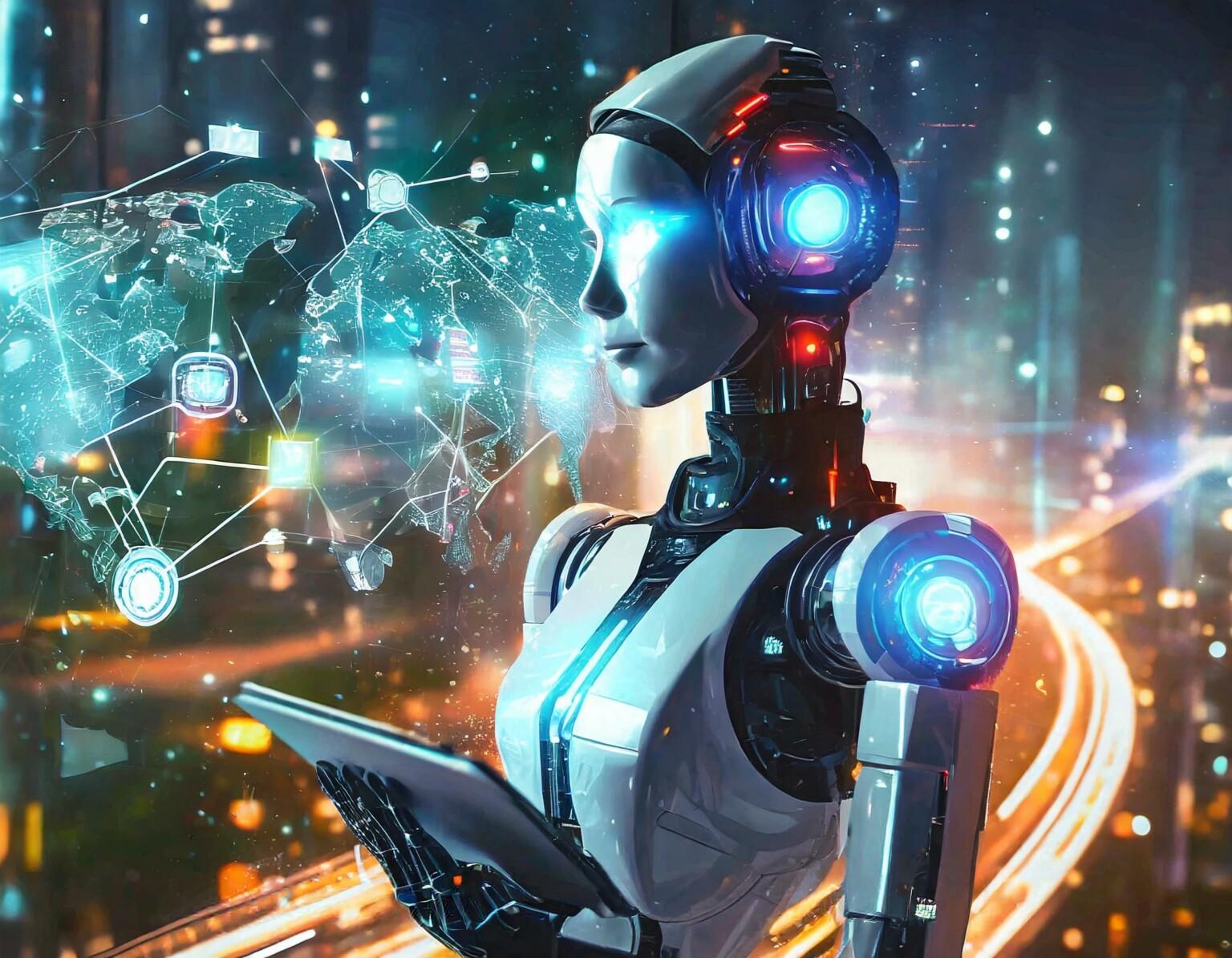Sini Sirén | 27.3.2024
Generative AI is one of the research areas of AI that focuses on the creation of new content.
This can be text, images, music or other types of data.
AI uses machine learning models, such as neural networks, to learn from existing data and generate new, unprecedented content.
The core idea behind generative AI is that machines can not only analyse data, but also create it.
This means, for example, that AI can write poetry, compose music or create realistic images – all without direct human control.
It learns to recognise features and structures in the data and uses them to create new content.
The advantage of AI (Artificial Intelligence) is its ability to process large amounts of data and create new content quickly.
This can save time and resources as AI performs routine creative tasks.
In addition, AI can produce content that is unique and tailored to the needs of individual users.
Generative AI is used in many different fields.
For example, in art it can help create new works of art, in marketing it can help create advertising material, and in the games industry it can help produce game content.
AI can also be used in scientific research to simulate experiments or to create models that predict the effects of certain drugs.

The challenge for generative AI is the quality of the content it creates and ethical issues.
AI-generated content is not always the same as human-generated content, and it is important to ensure that AI does not infringe copyright or create misleading content.
There is also an ethical question of the extent to which AI should be used in creative processes.
There are also ethical issues related to the use of AI.
It is important to ensure that AI is used responsibly and that the content it produces is ethically acceptable.
AI developers and users need to consider how to ensure that AI does not harm people or society and that it respects individual rights and privacy.
Generative AI is developing rapidly and its application potential is constantly expanding.
In the future, we could see even more diverse and sophisticated AI applications that could change the way we create and consume content.
AI will play an increasingly important role in a wide range of fields, and its importance will continue to grow.
In the future, AI could revolutionise many sectors.
In medicine, for example, it can help develop new medicines and treatments by analysing large amounts of data and simulating their effects.
In education and research, AI can help students and researchers create new knowledge and make connections between different disciplines.
Generative AI is an exciting and rapidly evolving field with huge potential to change the way we work, learn and create.
While it brings many opportunities, it is also important to be aware of its challenges and ethical issues.
AI developers, users and regulators need to work together to ensure that AI benefits everyone and contributes to a sustainable and just future.
Step into the future! Contact us or alternatively you can check out our social media channels:

#letsgrow
Tekoälytoimisto Uhma on suoraviivainen, dataorientoitunut ja käytännönläheinen kasvukumppani.